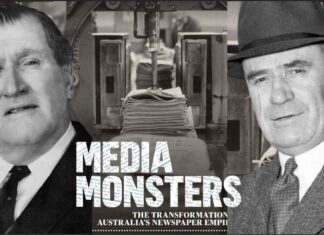PwC Australia scandal: what actually happened and will it be fatal for the advisory firm?
Parliament House takes on a 'fist fight at the chess club' energy, as PwC tax scandal and Voice debate heat up

PwC used its global network to profit from privileged information, drawing in other parts of one of the world’s biggest professional services firms.
PricewaterhouseCoopers’ public slogan is to “build trust in society and solve important problems”.
![]() But its embattled Australian affiliate breached that trust when it misused confidential government tax information for commercial gain, creating its own crisis that threatens to extend beyond national borders.
But its embattled Australian affiliate breached that trust when it misused confidential government tax information for commercial gain, creating its own crisis that threatens to extend beyond national borders.
While the scandal is Australia-centric, PwC used its global network to profit from privileged information, drawing in other parts of one of the world’s biggest professional services firms.
Its admitted failings are now subject to a police investigation, and governments around the world will be taking note amid a growing reliance on private consultants to formulate public policy.
What happened at PwC Australia?
In 2015, the now former PwC adviser Peter Collins, the international tax chief at the Australian affiliate, was helping the federal government design tougher multinational tax laws.
Australia’s treasurer at the time, Joe Hockey, was concerned about the rise of opaque structures like the “double Irish, Dutch sandwich” that involved sending profits through one Irish company, then to a Dutch company, and back to another Irish company in a tax haven.
Such schemes were particularly popular with US tech firms, including Google (who has said it no longer uses the loophole).
Collins, who had signed confidentiality agreements with the Australian government, fed intelligence on the government plans to PwC personnel both in Australia and abroad. The firm used that information to give more than a dozen US companies an early warning of the changes, netting additional fees and potentially depriving Australia of tax revenue.
The question of which colleagues received Collins’ communications, and what they did with the information, would become a central part of future inquiries.
The structure of firms providing advice to government agencies on sensitive topics is also now under scrutiny. Unlike a pure advisory firm, PwC’s practice of advising authorities on the design of tax laws, and creating tax arrangements for clients, creates a devastating conflict if not strictly managed.
How did the scandal become public?
Collins was deregistered by the Tax Practitioners Board late last year after an investigation found he shared confidential information and documentation obtained from consultations with Treasury.
The findings, which prohibit him from reapplying for tax agent registration for two years, were not publicly known until a story in The Australian Financial Review in January.
It has since been revealed in Senate estimates, which allows Australian senators to examine the use of taxpayers’ money, that the tax office became aware in 2016 that a handful of multinationals “suspiciously and quickly” sought to restructure operations in response to new tax avoidance rules.
Specifically, the Australian Taxation Office (ATO) was concerned by tax schemes marketed by PwC that threatened the country’s tax take, and it suspected there were confidentiality breaches.
Information was passed to police, but it did not initially result in a full investigation. Treasury has since referred the matter back to the Australian federal police, citing new evidence.
The ATO also formally referred the issue to the Tax Practitioners Board in 2o2o, which led to the decision to deregister Collins. Crucially, the tax board passed on 144 pages of internal PwC emails to the Senate, although redactions have frustrated some of the senators.
How has PwC responded?
The accounting firm’s initial response to the scandal was to claim those directly involved, including Collins, had already left the company.
Ian Ramsay, who formerly headed a federal government inquiry into auditor independence, said the response had been inadequate.
“There has been an abject failure of PwC to effectively deal with this, and basically endeavour to minimise it. At each step they’ve realised that they need to offer more fulsome apologies and take more accountability,” said Ramsay, an emeritus law professor at the University of Melbourne.
In early May, under sustained pressure, PwC Australia chief executive Tom Seymour resigned. He was one of dozens of partners who received emails about the confidential information from Collins, although there is no inference he used that information inappropriately.
In a sign of the seriousness of the situation, senior global executives were in Sydney shortly before Seymour’s resignation.

Separately, nine of the firm’s partners, who have not been named, have been directed to take leave pending the outcome of an internal investigation.
Senators Deborah O’Neill and Barbara Pocock are pressing PwC to release the names of all partners involved in the scandal. O’Neill has warned that anything less would amount to a “continued obfuscation and cover-up”.
Is the scandal fatal for PwC Australia?
The issue has sparked debate over conflicts of interest between auditors, accountants and consultants, and whether one firm can work across all areas, as PwC and other major accountancy groups do.
Ramsay said while he believed the broader business would survive, PwC Australia’s tax division was under threat.
“There’s some real questions about the future of the tax group here. It’s going to be quite challenging for the tax practice to regroup after this.”
On 29 May, PwC Australia published an open apology on behalf of acting chief executive Kristin Stubbins.
“Although investigations are still under way, we know enough about what went wrong to acknowledge that this situation was completely unacceptable,” the apology said.
“No amount of words can make it right. But I am fully committed to taking all necessary actions to re-earn the trust of our stakeholders.”
The company said it would ringfence its services to federal government departments and agencies to prevent conflicts of interest.
PwC has also committed to publishing in full the details of an independent review into its operations and culture, after it was criticised for initially promising to only share a summary of the key recommendations.
In the meantime, the firm’s relationship with federal and state governments, as well as other agencies, is unravelling. The Reserve Bank is among those to publicly say it has halted signing new contracts with it until PwC can demonstrate complete transparency.
All up, PwC had more than $0.5bn worth of contracts with the federal government last year.
The issue has highlighted how dependent the public sector is on the consulting industry which should give government departments reason to rethink the relationship, according to UNSW associate professor Scott Donald.
“Parts of the public service have clearly been hollowed out,” said Donald, a senior lecturer in the law faculty.
“They have somewhat become captive of the industry. Maybe the scandal will be the opportunity to think more broadly about the interaction between sensitive government policy and the private sector.”
This article was originally published in The Guardian
PwC tax scandal: Scrutiny on firm’s Australian business likely to extend to UK and US operations

Experts say business model of consulting organisations rife with conflicts of interest amid renewed debate about separating auditing from advice.
When PricewaterhouseCoopers’ Australian business issued an expansive apology over the tax leaks scandal, it may have hoped for an opportunity to start rebuilding its reputation.
Instead, it endured one of the most difficult weeks of the self-inflicted crisis, when not only the structure of its own business was scrutinised, but that of its global operations and wider consulting industry.
PwC Australia is now subject to multiple investigations, including a criminal probe, after its now former international tax chief used confidential information and documents obtained through his work for the government for the firm’s commercial gain.
The former PwC adviser Peter Collins fed intelligence on government plans to toughen multinational tax laws to colleagues to win overseas business in actions that may have also robbed Australia of tax revenue.
Inquiries will almost certainly extend into the UK, where PwC is headquartered, and the US, after the information was shared with affiliates. There is also now a push to test the value of consultancy contracts with government agencies, and whether the advice is inherently conflicted.
“They don’t come in just to provide internal advice, they come in to provide advice on government policy. They tell you to privatise or to put in place commercial models, and then you need them to enact those changes.”
The strategy is colloquially known as “land and expand” whereby an initial contract leads to ongoing lucrative work.
The use of consulting firms in the public service is now widespread, with PwC Australia holding more than A$500m in contracts with the federal government last year alone.
That figure does not take into account numerous contracts with state governments and agencies, and also work done by its major accounting competitors – Deloitte, KPMG and Ernst & Young.
Internationally, revenue for global management consultants is forecast to total US$860.3bn in 2023, according to the research house IBISWorld. Most of the major consultancies are based in the UK or US.
Regulators around the world, in particular in the UK, have raised concerns over the ability of firms to properly audit accounts, while also offering lucrative consulting contracts to those same clients.
In the US, the Securities and Exchange Commission last year started an investigation into the large accounting firms to test whether their consulting services undermine their ability to audit a public company’s financial books.
In 2021, KPMG Australia was fined over widespread cheating on online tests designed, in part, to ensure partners and staff act with integrity.
Representative body Chartered Accountants Australia & New Zealand says it is conducting its own investigation into the PwC matter. It declined to comment on any conflicts of interest in the broader industry and potential need for reform.
On 29 May, PwC Australia published an open apology on behalf of the acting chief executive, Kristin Stubbins, who took over after the resignation of Tom Seymour.
The apology acknowledged that the culture in its tax arm allowed inappropriate behaviour to occur.
On the same day, PwC announced it had directed nine partners to go on leave pending the outcome of an investigation, but did not reveal their names.
The apology did little to quell public anger, with the Labor senator Deborah O’Neill warning anything short of naming all PwC partners involved in the tax issue represented a “continued obfuscation and cover-up”.
While the tax scandal was initially focused on the misuse of confidential government information, the entire industry is now under scrutiny, reigniting a debate about separating auditing from consulting and advice.
Two days after the PwC apology, the government of Australia’s most populous state, New South Wales, established an inquiry into the use of consultants that is more sweeping than prior examinations.
The terms of reference include an appraisal of the transparency of work undertaken by consultants along with measures taken to prevent conflicts of interest, breaches of contract or any other unethical behaviour.
“This one’s about consultant business models and that opens up a space for change,” Guthrie says.
The tax scandal also highlights how dependent government departments are on external consultants for matters that would have previously been handled internally.
An audit found that the previous Coalition government in Australia spent $20.8bn outsourcing more than a third of public service operations.
Michael Tull, assistant national secretary at the Community and Public Sector Union, says while there is a place for seeking specialist advice, governments are relying on consultants for day-to-day operations.
He says this is evident when government departments hire consultants to oversee assessments of grants and public contracts.
“You end up with contractors awarding contracts to contractors,” Tull says.
Such a scenario shows a need to require consultants to disclose their client lists, which does not currently happen.
Tull says the PwC scandal proves there is a need for a better regulatory regime that also allows governments to cancel existing contracts when a firm acts unethically.
“The first thing we need is a regulatory regime that actually recognises the fundamental risk that profit-driven companies are going to drive for profit,” he says.
This article was originally published by The Guardian







